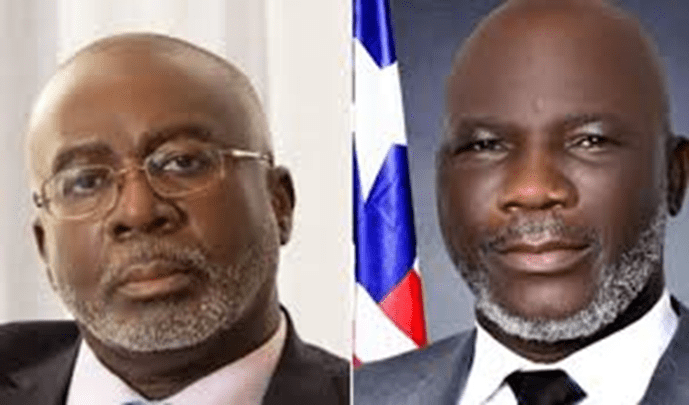The Supreme Court of Liberia is poised to deliver a pivotal ruling on April 23, 2025, concerning the protracted dispute over the Speakership of the House of Representatives. The case stems from a Bill of Information filed by the embattled Speaker, Cllr. J. Fonati Koffa, against his rival, “Regime Speaker” Richard N. Koon, who leads the majority bloc. The Bill seeks clarification of a previous Supreme Court opinion regarding the legislative impasse. The Court’s decision is eagerly awaited as it will likely determine the legitimate leadership of the House and, consequently, the direction of legislative proceedings. The Supreme Court’s communication to the Marshal instructs the notification of involved parties about the impending ruling, underscoring the significance of the event.
The heart of the conflict lies in the interpretation of the Supreme Court’s earlier ruling on the House leadership. Justice Minister Oswald Tweh’s interpretation advised President Joseph Boakai to recognize and engage with the majority bloc led by Speaker Koon. This interpretation prompted Cllr. Koffa to file the Bill of Information, seeking a definitive clarification from the Court to resolve the ambiguity surrounding the legitimate Speaker. Koffa contends that the Minister’s interpretation misrepresented the Court’s original intent and, consequently, undermined his authority as Speaker. He seeks the Court’s intervention to reaffirm his position and restore order to the House proceedings.
The Supreme Court issued a writ on March 4, 2025, in response to Koffa’s Bill of Information, compelling “Regime Speaker” Koon and other involved parties to submit their responses. The Court demanded a justification for why Koffa’s request for clarification should not be granted. This action indicated the Court’s willingness to delve into the matter and provide a decisive resolution. The subsequent hearings witnessed arguments from both sides, with the Court ultimately reserving its judgment to allow President Boakai time for consultations before delivering its final ruling.
The prolonged dispute over the Speakership has effectively paralyzed the House of Representatives, hindering legislative progress and potentially jeopardizing the country’s governance. The uncertainty surrounding the leadership has created a volatile political environment, with both factions claiming legitimacy. This power struggle has not only disrupted the legislative agenda but also raised concerns about the stability and effectiveness of the Liberian government. The Supreme Court’s ruling is therefore expected to have far-reaching implications, potentially reshaping the political landscape and restoring order to the legislative branch.
The Supreme Court’s decision is crucial not only for resolving the immediate leadership crisis but also for upholding the principles of constitutionalism and the rule of law. The Court’s interpretation of its own previous ruling will set a precedent for future disputes and clarify the legal framework governing legislative processes. A clear and unambiguous ruling is essential to prevent future power struggles and ensure the smooth functioning of the Liberian government. The judiciary’s role in providing impartial and definitive interpretations of the law is paramount in upholding the integrity of democratic institutions.
The ruling, expected on April 23, 2025, will bring much-needed clarity to the protracted dispute and determine the legitimate leadership of the House of Representatives. The nation awaits the Supreme Court’s decision, hoping it will not only resolve the immediate crisis but also provide valuable guidance for navigating future political and legislative challenges. The outcome will significantly impact Liberia’s political trajectory, affecting legislative efficiency, government stability, and the overall democratic process. The Court’s responsibility in this case extends beyond resolving a leadership dispute; it includes safeguarding the principles of democratic governance in Liberia.














